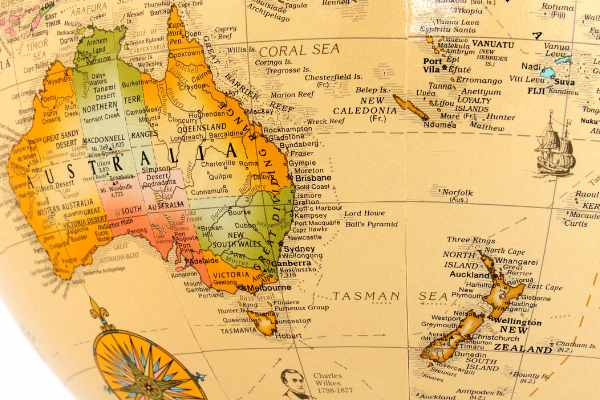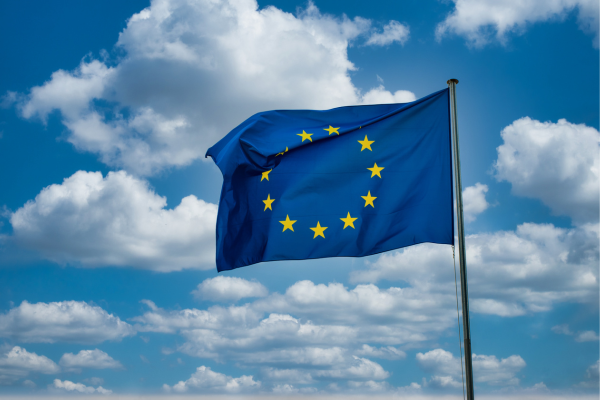BY:
SHARE:

At midnight on 31 May 2023, the two new UK trade agreements will come into force. These are the Free Trade Agreements (FTA) with Australia and New Zealand.
They are the first two independently negotiated trade agreements since the UK left the European Union and came into force across all three countries at midnight on 31 May 2023. The agreements can come into force after the Trade (Australia and New Zealand) Act 2023 received Royal Assent in the UK on 23 March 2023.
They are very modern FTAs, as they cover a wide range of areas, not just the trade in goods and services. Both agreements also cover sanitary and phytosanitary measures, technical barriers to trade, financial services, professional services and recognition of professional qualification, temporary entry for businesspersons, investment, digital trade, government procedures, consumer protection, Small and Medium Sized Enterprises, innovation, gender equality, animal welfare and transparency and anti-corruption.
If we look specifically at the trade-in goods sections and the rules of preferential origin, these are covered in Chapter 3 of the UK-New Zealand FTA and Chapter 4 of the UK-Australia FTA. Many of the procedures and rules are similar, with a low-value waiver agreed at GBP 1,000.00 for exports from the UK to both markets and at NZD 2,000.00 for goods from New Zealand and AUD 1,000.00 for Australian exports.
Both agreements require a statement of preferential origin to be made on a commercial document raised by the exporter. The exporter preference origin statements do not require an authorisation such as REX, GB EORI, or approval number to be quoted. The wording is within Annex 3B for the UK-New Zealand FTA and within Annex 4B of the Australian FTA, as follows.
| UK-Australia FTA | I (the exporter/the producer) declare that the goods described in this document qualify as originating and the information contained in this document is true and accurate. I (the exporter/the producer) assume responsibility for proving such representations and agree to maintain and present, upon request or to make available during a verification visit, documentation necessary to support this declaration of origin. |
|---|---|
| UK-New Zealand FTA | I (the exporter/the producer) declare that the goods described in this document qualify as originating and the information contained in this document is true and accurate. I (the exporter/the producer) assume responsibility for proving such representations and agree to maintain and present upon request or to make available during a verification visit, documentation necessary to support this declaration of origin. |
Both agreements also provide the preferential duty to be claimed at import using importer’s knowledge. This is not as straightforward as it might sound. The importer must hold all production and manufacturing records for the goods imported. As most of this information is commercially confidential, it may not be possible to use this option.
Trade Agreements cover many areas, including preferential access to both markets for UK goods and similar access to the UK for goods made in Australia and New Zealand. The qualification rules of origin – known as Product Specific Rules (PSR) – are more flexible than other UK FTAs, including the Trade Cooperation Agreement (TCA) between the UK and the European Union. These flexible rules of origin mean manufacturing businesses can use some imported parts and ingredients and still qualify for the new 0% preferential tariffs, but companies hoping to benefit from these trade deals must still ensure they check and understand the rules.
The UK-Australia and UK-New Zealand deals also include tariff-rate quotas (TRQ) that will last for several years (e.g. ten years); depending on the product, these will apply higher tariffs to imports above a certain volume threshold (the quota level). There are also safeguard mechanisms within the agreements to provide a temporary safety net for UK producers threatened with serious injury from increased imports due to tariff liberalisation under the FTA. There are intended to be robust protections for British farmers, especially with the staging of tariff liberalisation for sensitive goods over time. For example, in the UK-New Zealand FTA, the tariff-rate quotas and product-specific safeguards apply to a range of the most sensitive agricultural products, including beef, sheep meat, cheese, butter and apples. These measures will limit the volume of duty-free imports permitted into the UK and, in the case of beef and sheep meat, will be in place for 15 years.
The Rules of Origin permit the use of material (i.e. “a good that is used in the production of another good”) from a wide sourcing area, the key being that the final production process occurs in the exporting country party to the agreements. To quote from the UK-New Zealand FTA, the 3rd-way goods may qualify for preference is when it “is produced entirely in the territory of one or both of the Parties using non-originating materials, provided the good satisfies all applicable requirements of Annex 4B (Product-Specific Rules”).
The Product Specific Rules (PSR) - Annex 3A (118 pages) UK-New Zealand FTA / Annex 4B (273 pages) UK-Australia FTA – are not necessarily the same within each FTA for the same goods. There are four types of PSRs in each agreement:
1. “CC” means that all non-originating materials used in the production of the good have undergone a change in tariff classification at the two-digit level;
2. “CTH” means that all non-originating materials used in the production of the good have undergone a change in tariff classification at the four-digit level;
3. “CTSH” means that all non-originating materials used in the production of the good have undergone a change in tariff classification at the six-digit level;
4. “RVC(X)” means that the good must have a regional value content (similar to originating material) as calculated under Rules of Origin and Origin Procedures of not less than (X) per cent whether using the build-up method or build-down method.
The UK-Australia FTA has a 5th option for certain fabrics (covered by Chapters 51, 52, 54, 55, 58 and 60 “FF”. “FF” means that the goods must undergo a change from fabric that is constructed but not further prepared or finished, provided that it is dyed or printed and undergoes at least one preparatory or finishing process in the territory of one or both Parties to render it directly usable. This usually is an alternative rule alongside the PSR “CC” – the exporter/ importer must choose the rule for which they hold evidence.
Here are some examples:
| Goods | Tariff Heading/ Sub-Heading | UK-Australia FTA | UK-New Zealand FTA | ||
|---|---|---|---|---|---|
| PSR | AU Duty saved | PSR | NZ Duty saved | ||
| Whiskies | 2208.3 | CTH | 5% of FOB + 97.90 AUD/l alc. 100 % | CTH | 60.545 NZD/l alc. 100 % |
| Curtains (including drapes) and interior blinds; curtain or bed valances | 6303 (19) | CC | 5% of FOB | CC or RVC40 | 5% of FOB value |
| Other woven fabrics of cotton: Weighing not more than 200 g/m2: printed | 5212.15 | CTH or FF | 5% of FOB | CC or RVC40 | 0% (no need to use preference) |
Both trade deals are expected to drive economic growth and innovation across the UK. Removal of UK import tariffs on the majority of goods from Australia and New Zealand, reducing prices for UK consumers on favourites such as wine and manuka honey and lowering costs on machinery parts for UK manufacturers.
Removal of UK import tariffs on goods from Australia and New Zealand, including favourites such as wine, swimwear, surfboards, boots, manuka honey and kiwi fruits, are seen as paving the way for UK consumers to get more choice, quality products and lower prices, but also it means cheaper access to ingredients, materials and components from Australia and New Zealand for UK manufacturers – such as hydraulic power engines and pressure reducing valves from Australia and make-up and biscuit ingredients from New Zealand.
While you are here you may be interested in some Strong & Herd LLP training courses & live clinics related to this topic:
Understanding Origin & Preference
Understanding Free Trade Agreements
OneCall™ Email assistance as and when required; A one-call solution for all your import, export and customs enquiries. Export help. Import help. Customs help.
Stay informed about customs and international trade matters by subscribing to our OneCall™ service. This comprehensive offering includes a dedicated email helpline for support, timely practical updates direct to your inbox (Did You Know?), monthly UK Customs & Trade Briefings and access to an interactive members' area with an exclusive community for our subscribers.
International Trade Updates & Spotlight Newsletter
Subscribe to our free information emails covering international trade topics...









